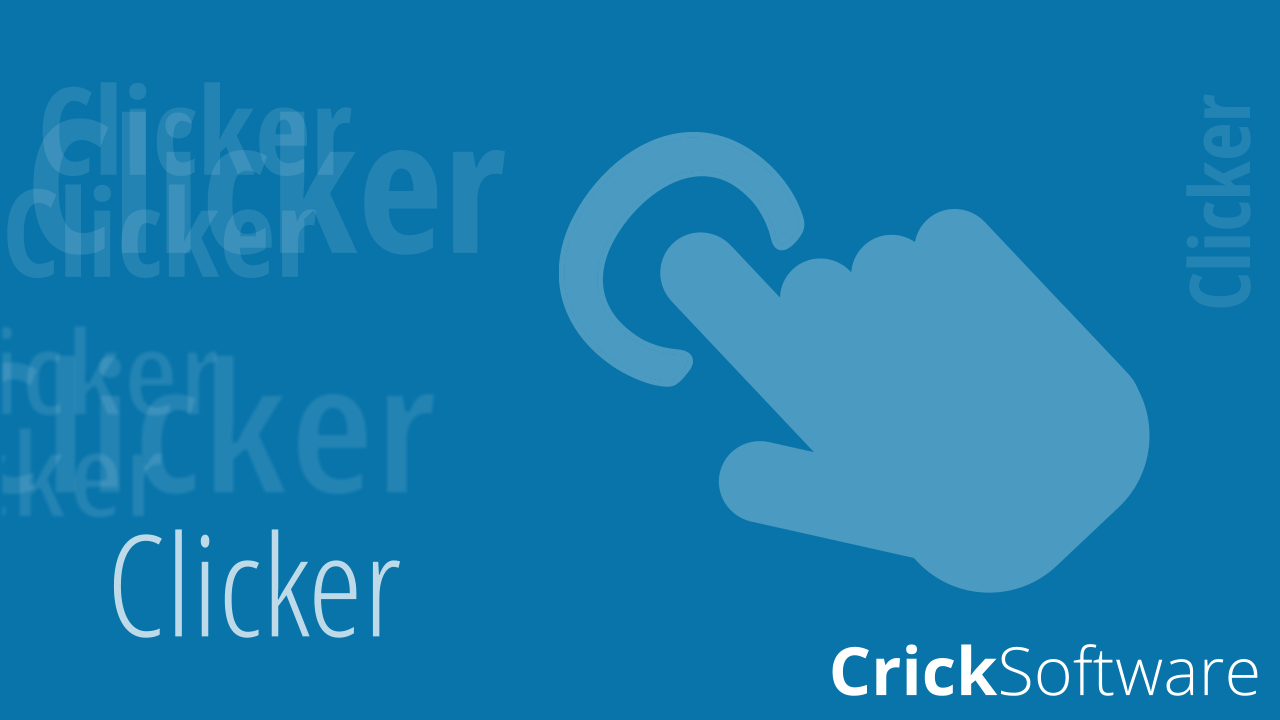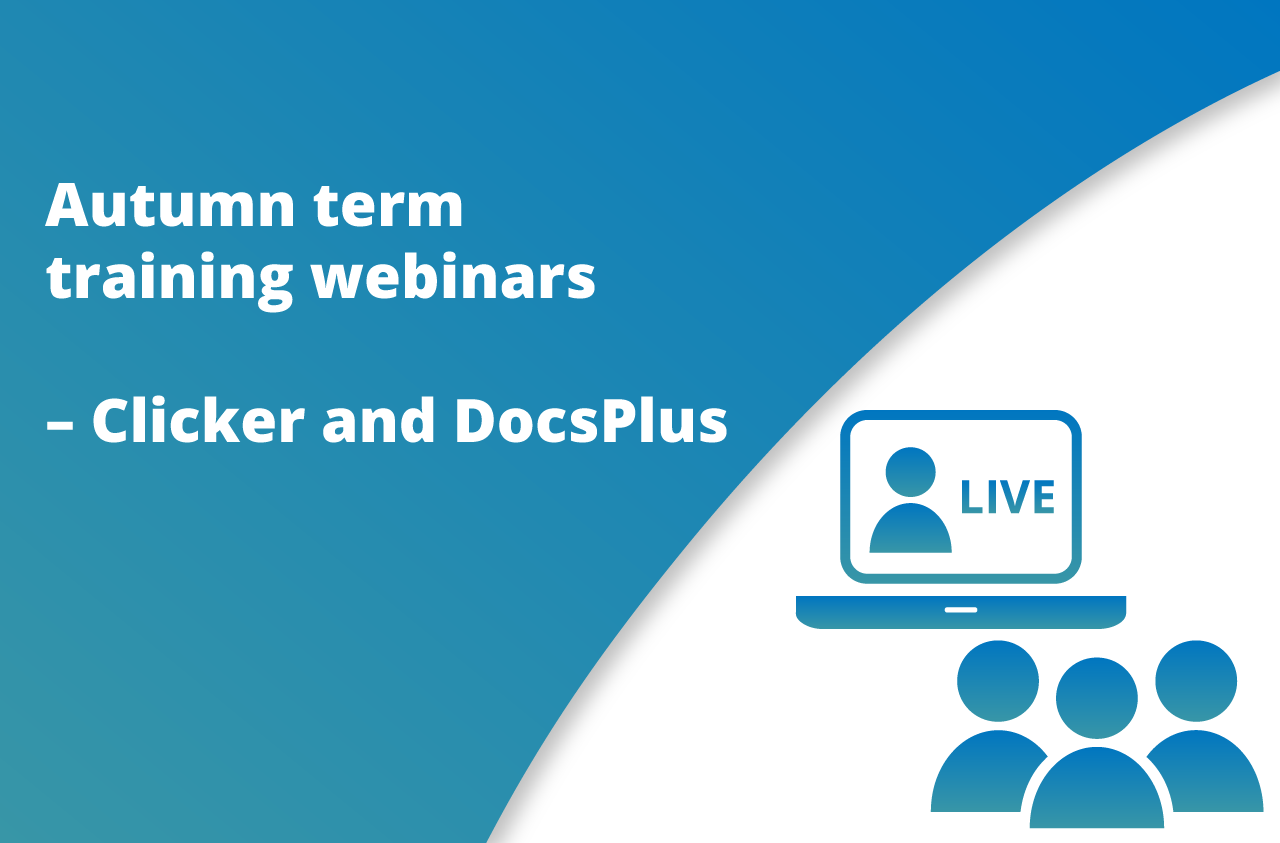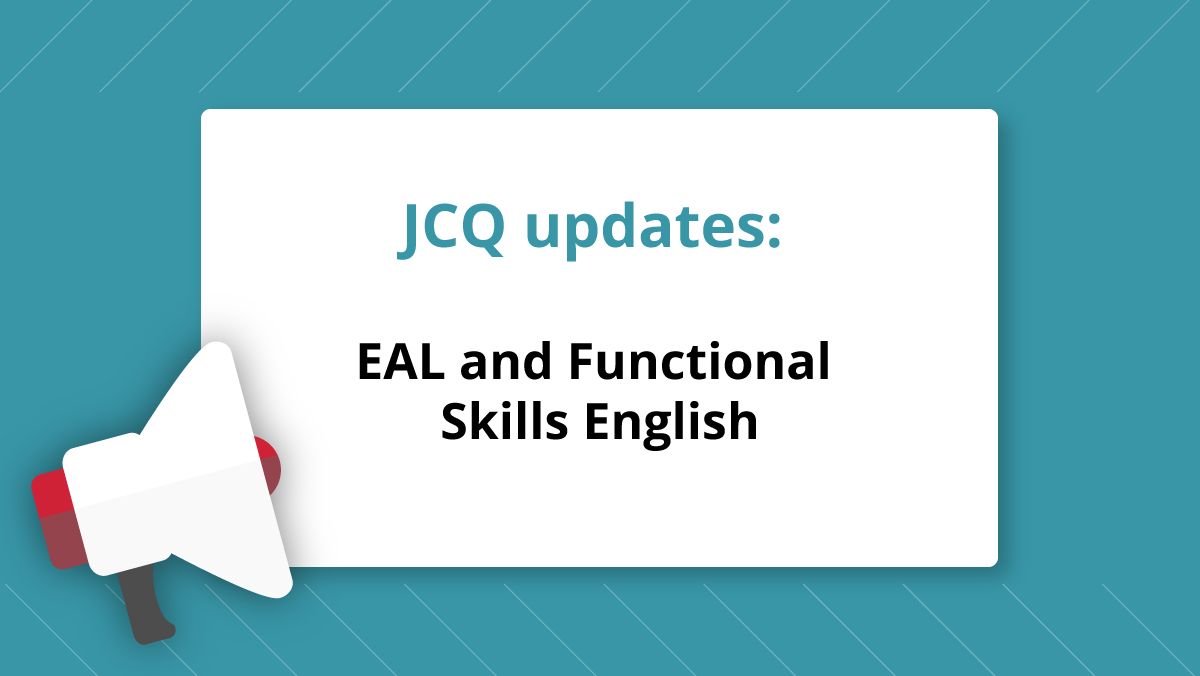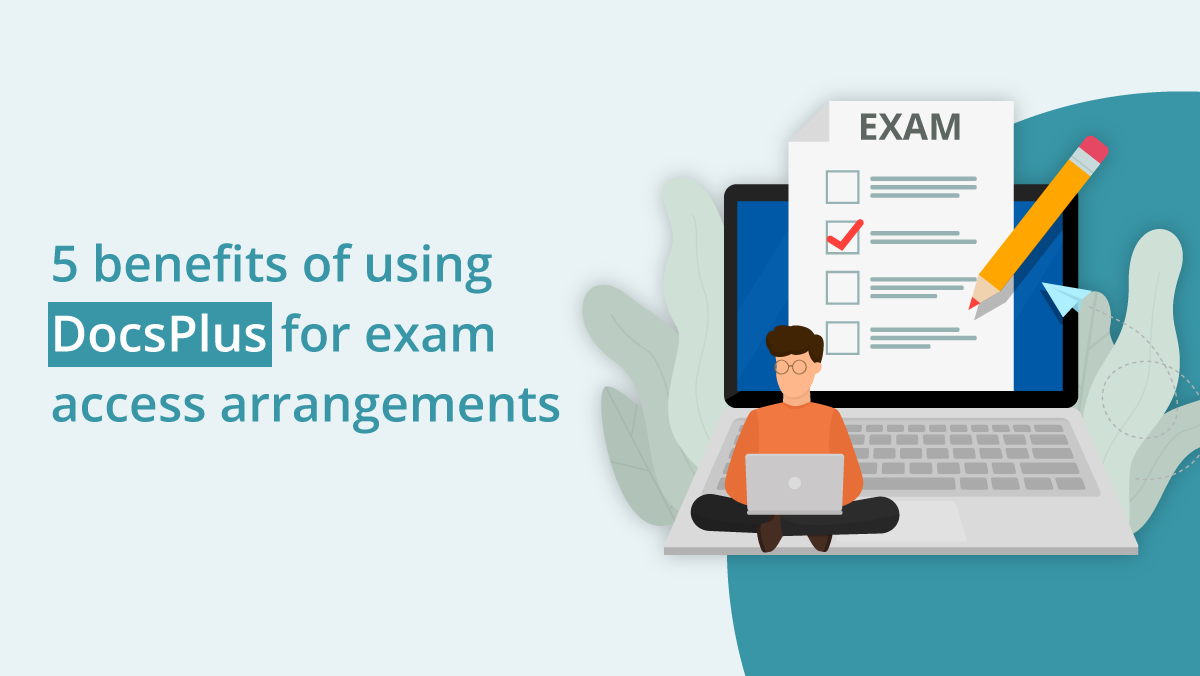Picture the scene: It’s 1.45pm and your Year 1 class have just listened eagerly to a Science lesson all about the five senses, you’ve kept them captivated and are just setting them off to do some independent writing. Suddenly it’s 2pm, six children still haven’t found a pencil, four children have skipped three pages in their exercise book and a large percentage of your class have written a sentence that looks nothing like the work they produced in Literacy that morning. Before you know it, it’s 2.15pm and the children are rushing out to play with half a sentence written on the wrong page in their book...
So, my question is, how can Clicker help some of our youngest writers to accurately portray their understanding in our foundation subjects? When I was teaching, I found that my Year 1’s Science and Topic books were rarely a true representation of what they had learnt and understood throughout the lesson, and I was always searching for ways to increase engagement and evidence new learning in my classroom.
This is how I would use Clicker’s wide range of tools to ensure my whole class were showing off their new-found knowledge in foundation subjects. I am going to explore the Our Senses LearningGrids resources - ready-made resources that you can quickly and easily customise to suit the needs of your learners. This suggested sequence of activities can be used at the pace that suits your learners (and over a number of lessons depending on your timetable!)
Complete a pre-teach to check the children’s prior learning using a Clicker Board
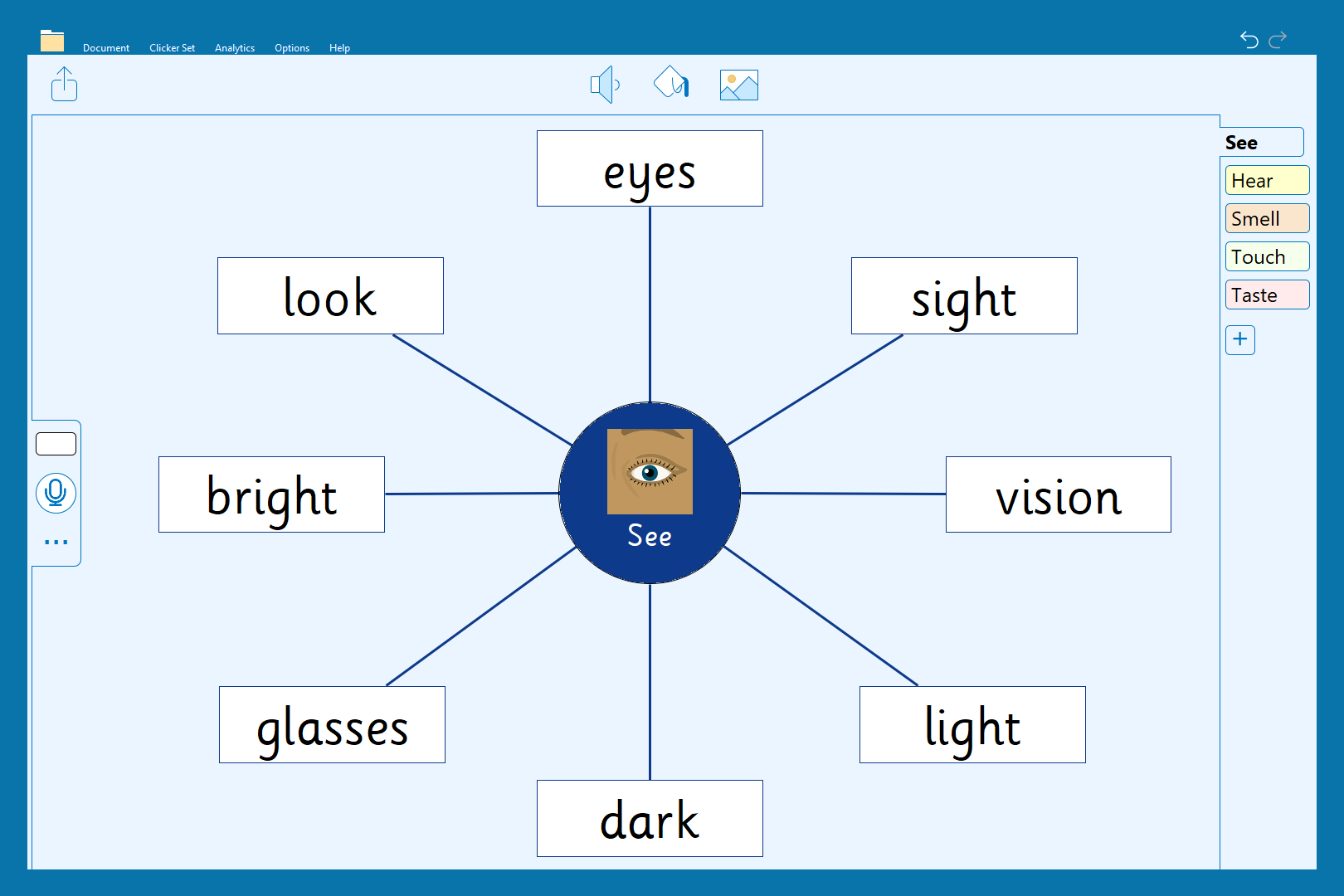
The beauty of Clicker is that you can adapt it to suit the needs of your class. Your Planning Board can be used with a whole class, in groups or individually. This pre-teach activity will give you a great insight into what your children already know. Why not repeat this activity at the end of the unit as a post-teach activity to see how far they’ve come?
Read a Clicker Book
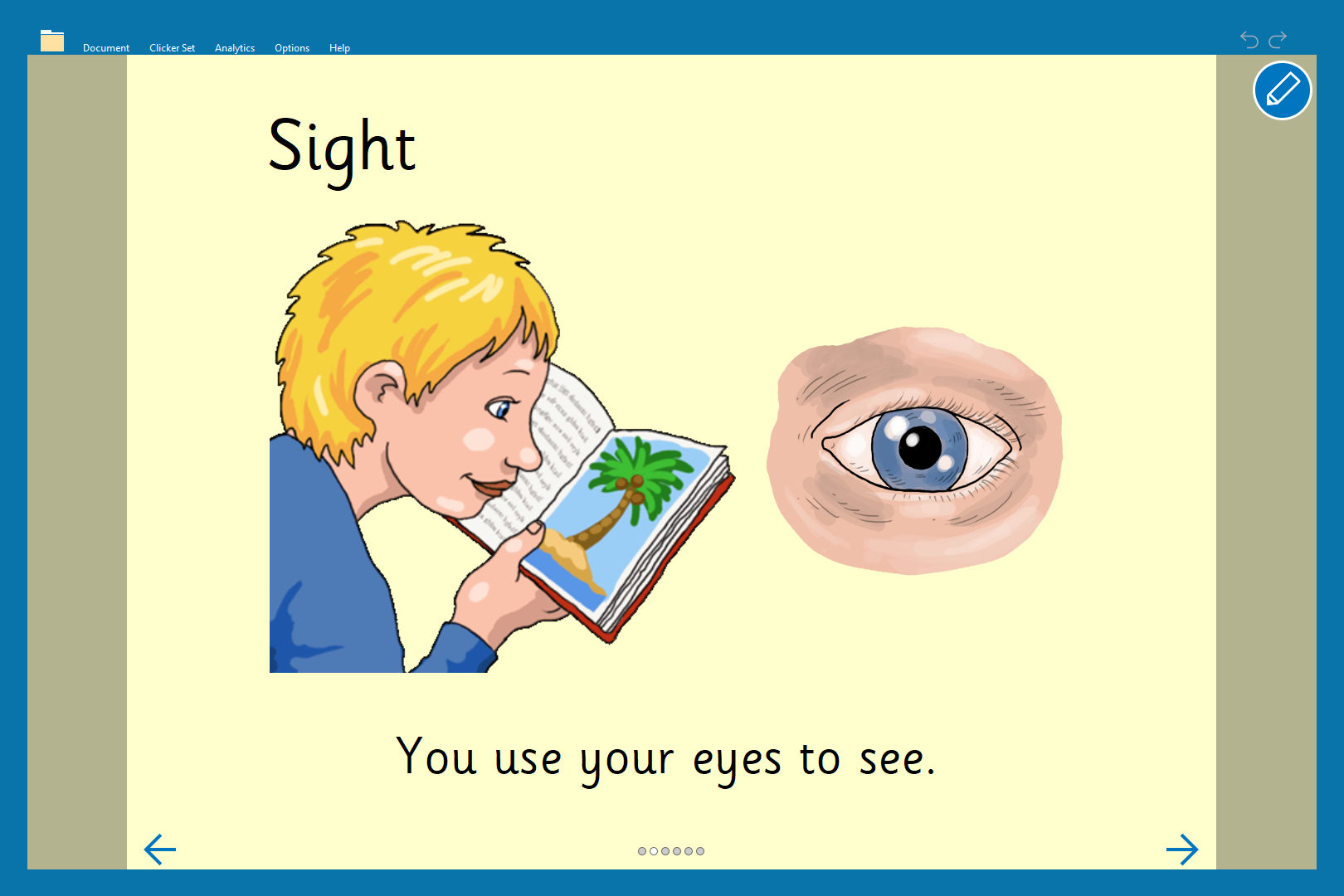
Once I’d explored what my children already know, I would use a Clicker Book about the senses to support my teaching. This could be done as a whole class during your teaching input, or more independently as part of a guiding reading session. You can choose for the children to read the book themselves or listen to the text read aloud.
Check children’s understanding through Matching Sets
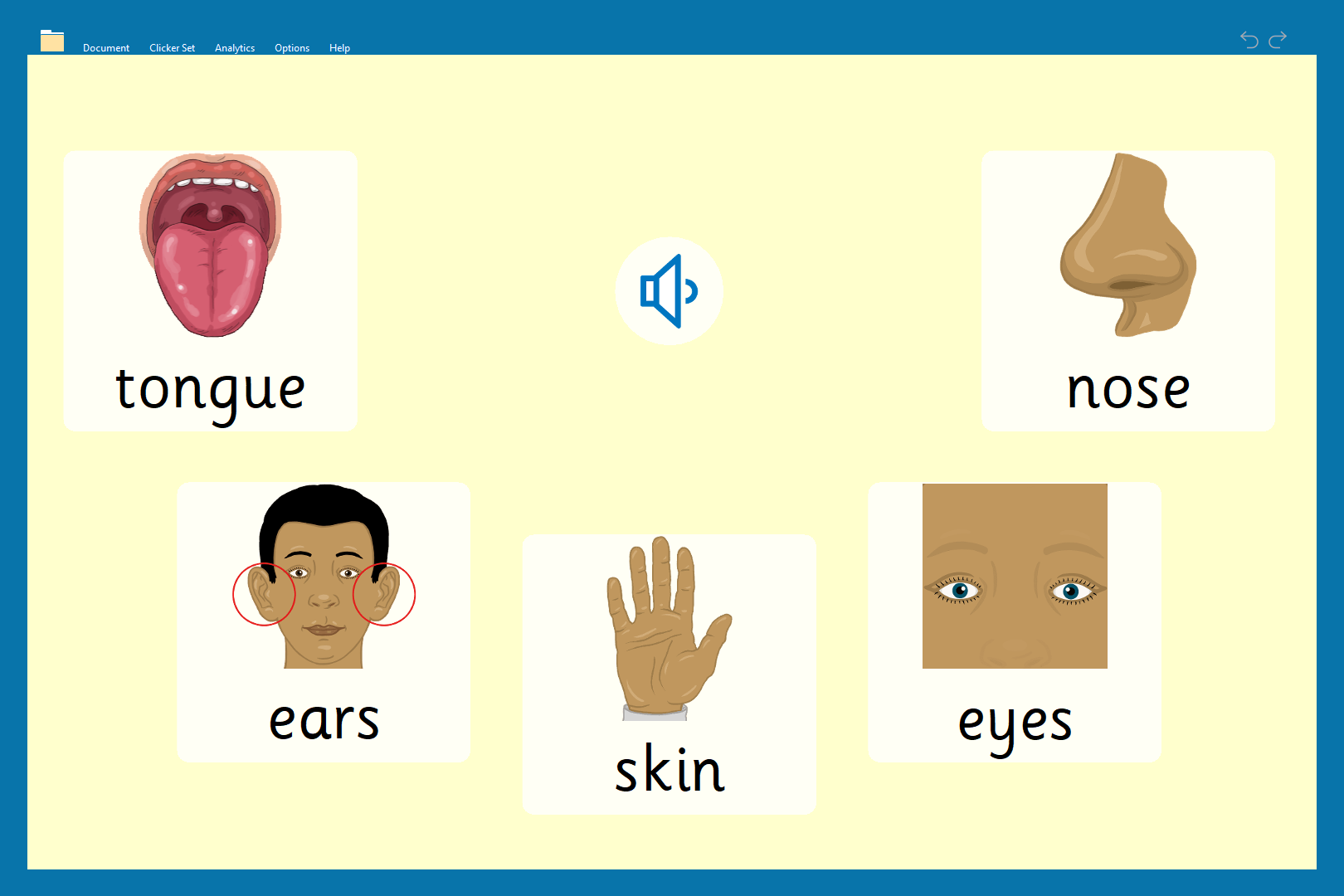
Time to let the children show off what they are learning! With this Matching Set children can show their understanding of the five senses whilst also having some fun. They listen to statements about sense organs and choose the picture that best fits the information. On each page, children need to simply click on the speaker button to listen and then choose the matching picture.
Oral recording of their new knowledge using Talk Sets
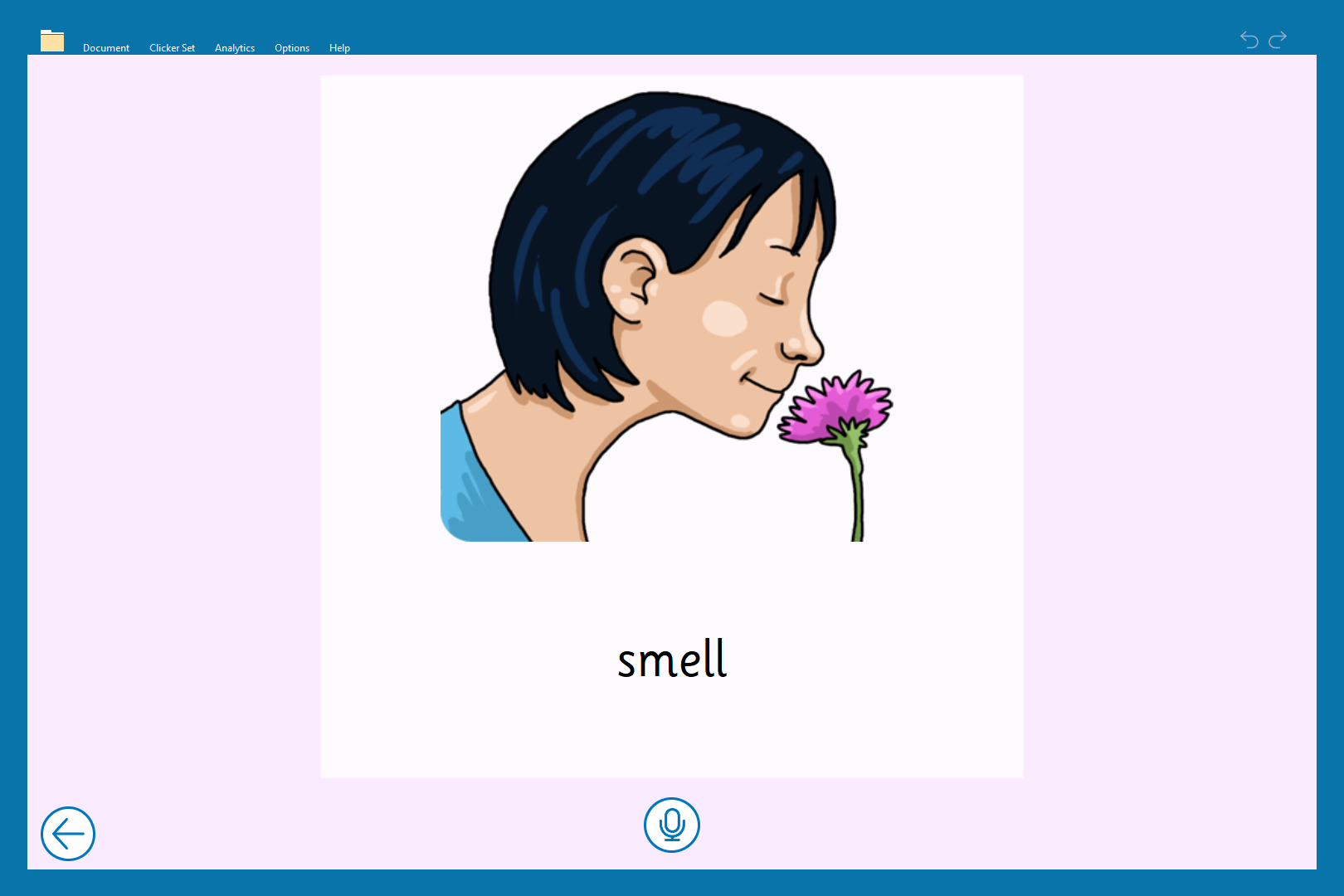
Next, I’d get the children talking about what they have learnt. In this Talk About activity, children record information about the five senses. There are Talk Sets linked to each of the senses, you could split your class into five groups and have each group plan out and record ideas for a different sense. You could then have a listening party where you share and celebrate each other’s work.
Write simple sentences using a Connect Set
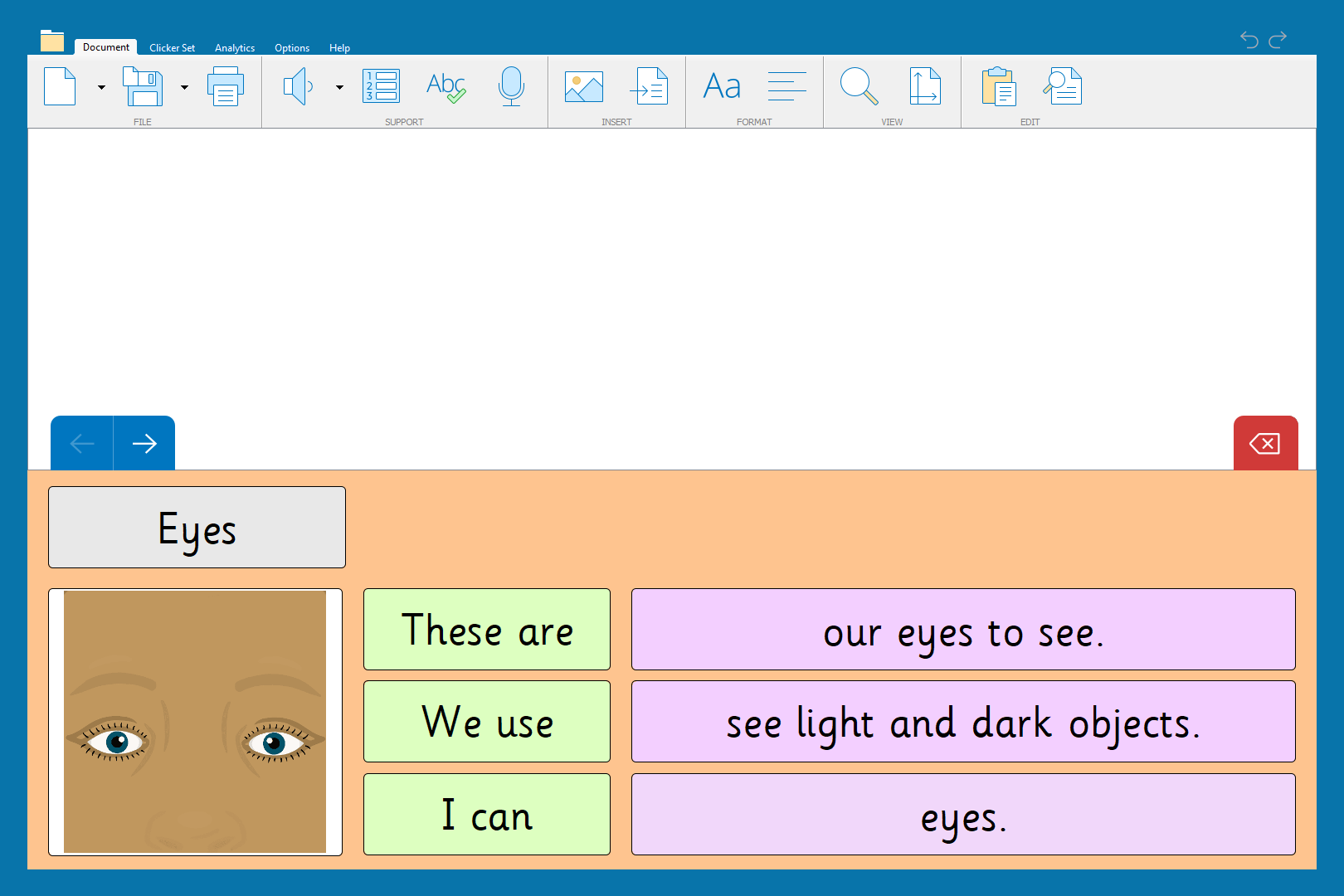
After the children had orally rehearsed their ideas in the previous lesson, I would set them the task of using a Connect Set to write simple sentences about each of the five senses by matching sentence beginning and endings. This is a great way for the children to practise sentences about what they have learnt before moving on to the grand finale…
…Make a book!
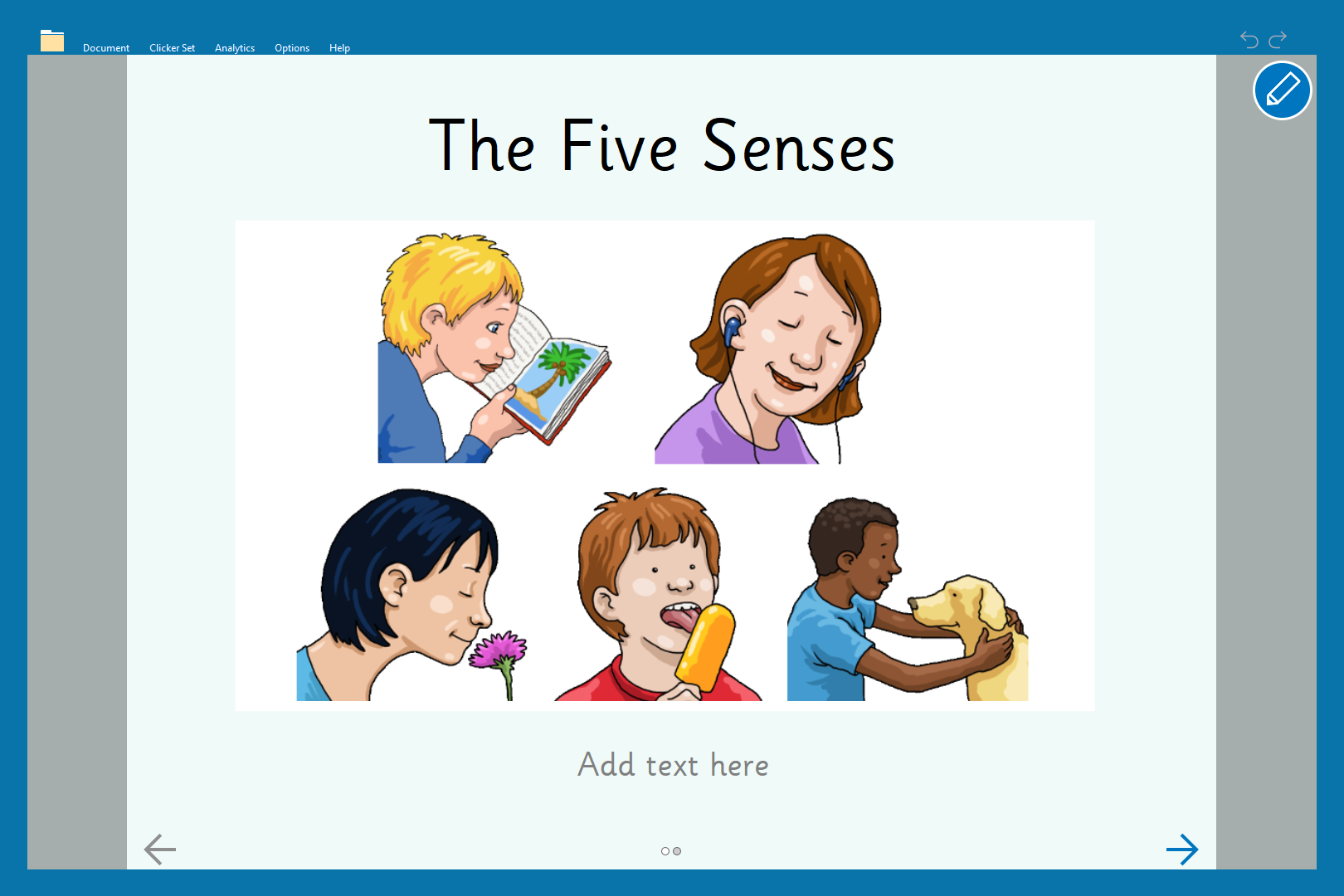
Now your children are experts on all things senses, they could make their own Clicker Book. This resource includes word and picture banks to support the children in being as independent as possible. This is something the children could do individually, in pairs or in groups. The children will love being a non-fiction author, and you can quickly see who has grasped the new learning and find out where any gaps in learning are.
So now, it’s the end of your senses topic and your class are proudly reading each other their Clicker Books, full of knowledge and relevant vocabulary. All children have been able to access the activities, and without a single child looking for a pencil!
The features I’ve mentioned here are just a small sample of the many easy-to-use tools and resources available on LearningGrids to support children with their cross-curricular writing.

